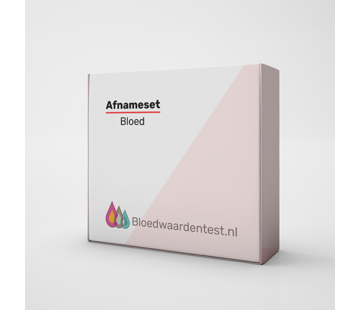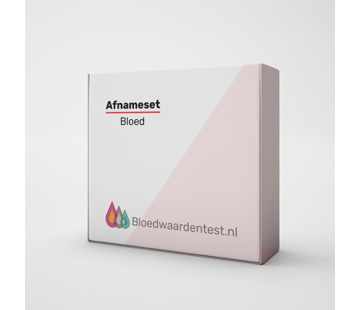Estradiol also known as Oestrogen
17-bêta-oestradiol Estradiol (17-ß-) (E2
)Test to determine deficiency (in women) or excess (in men and women) of estradiol production.
About Oestradiol
Estradiol is the main female sex hormone. Estradiol is required for normal development of female sexual characteristics.
Production rises sharply with maturing and fertilized eggs. Low estradiol means that no eggs are maturing (anymore).
In men this value is often measured during post-cure or to determine the cause of geno.
Estradiol or estradiol (17ß-estradiol) is a sex hormone and falls into the group of estrogens.
It is usually considered a female hormone, but is also present in men. Estradiol not only affects the reproductive system but also affects bone structure, among other things. It is the most common estrogen in fertile women, along with estrone (especially after menopause) and estriol (especially during pregnancy). The body makes it from androstenedione or from testosterone.
Estradiol concentrations are low in men. About 30% is produced by the testes and the rest comes from conversion in the liver and adipose tissue.
Before puberty, estrogen levels are also low. During puberty, estrogen rises and then changes take place during the cycle until menopause. After menopause, estrogen can only be produced through the adrenal glands.
Reasons for determination estradiol in blood can be:
- Research on female fertility
- Research on women with cycle disorders
- Suspicion of high oestradiol levels in men
- In men with breast development
Estradiol is bound to sex hormone binding globulin (SHBG). If there is a decreased SHBG value then this will affect the estradiol result. Normal levels of SHBG are assumed when establishing reference values. LH and FSH measurements can support to see if it is an early menopause or not.
Premature Ovarian Failure (POF) is a condition in which a woman stops menstruating before the age of 40. This is because the ovaries stop ovulating earlier than usual. The average age for Western women to enter menopause is around 51. About 1 in 100 women will experience premature ovarian failure.
POF or POI is caused by no more egg cells growing in the ovaries. This can also happen when you still have a desire to have children. When POI is diagnosed, a child wish or a possible future child wish can possibly be taken care of by freezing eggs. This is not always possible and cannot be done in every hospital.
Although the cause is usually unknown, POI can be caused by:
- damage to or removal of the ovaries (by chemotherapy, radiation or surgery)
- an enzyme defect
- an inherited defect
- an autoimmune disease
An early menopause can increase the risk of osteoporosis and cardiovascular disease. On the other hand, the risk of breast cancer is less, because women have been exposed to hormones for less time. Because of the increased risk of osteoporosis and cardiovascular disease, a healthy lifestyle (no smoking, healthy eating and sufficient exercise such as walking) is of extra importance. In addition, hormonal supplementation is often started in consultation with a physician.
see also the test AMH Anti Muller Hormone












